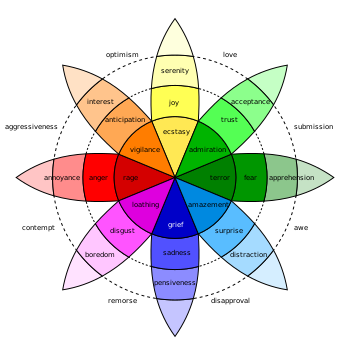[amazon_link asins=’B000YQHMEC,B007ESOK1G,B0197SJQ8W,1683640616,B074SWR26K,B00R5D5VB8,B072BWRV38,B006N91CHM,B075SJVDND’ template=’ProductCarousel’ store=’finmeacur-20′ marketplace=’US’ link_id=’86e89c17-d9c7-11e7-8f5d-81a379f55ac0′]
Self-acceptance is defined as “an individual’s acceptance of all of his/her attributes, positive or negative.” It includes body acceptance, self-protection from negative criticism, and believing in one’s capacities………CLICK & SEE

Many people have low self-acceptance. There can be many reasons for this, but one widely accepted theory is that because we develop our self-esteem, in part, from others appreciating us, people with low self-acceptance may have had parents who lacked empathy during their childhood. Consequently, in their adult lives, they may need much stronger affirmation from others than most people do. In other words, ordinary levels of approval do not “move the needle” on their self-esteem.
Some people with low self-acceptance try to bolster it by accomplishing great things. But this only helps your self-esteem for a while. That’s because achievement is a poor substitute for intimacy. In addition, these people are often under the impression that “taking it” when suffering is the main reflection of their value. It’s hard for them to believe in genuine caring, and when it does come their way, they are suspicious of it.
Of course, self-acceptance (or lack thereof) does not exist in a vacuum — it actually has profound effects on your physical and psychological health. For that reason, it is worth understanding what these effects are, and what you can do about it.
The emotional and physical consequences of low self-acceptance:-
Without self-acceptance, your psychological well-being can suffer, and often, beneficial interventions are less helpful for you than for others with higher self-acceptance.
For example, practicing mindfulness can help many people reduce the impact of stress. But when you cannot accept yourself, it becomes less effective. Also, if you have a physical illness such as rheumatoid arthritis, not accepting yourself can make you more anxious about your body. In this context, your automatic negative thoughts increase.

In addition, if you feel negatively about yourself, the brain regions that help you control emotions and stress have less gray matter than someone with a greater degree of self-acceptance — that is, these regions actually have less tissue to “work with.” This lack of gray matter may also appear in regions of the brainstem that process stress and anxiety. Stress signals from these latter regions, in turn, disrupt the emotional control regions. So, poor self-acceptance may disrupt emotional control in two ways: directly, by disrupting the brain regions that control it, and also indirectly, by increasing stress signals in your brain that subsequently disrupt these regions.
How to bolster your self-acceptance:-
There are three ways to increase self-acceptance:
1.self-regulation
2.self-awareness
3.self-transcendence.
Self-regulation involves suppressing negative emotions such as self-hatred, refocusing on the positive aspects of yourself, and reframing negative situations so that you see the opportunities in them. For example, looking for ways in which negative criticism can help you grow constitutes reframing.
However, self-control may be less powerful than we think. The lack of self-acceptance can be deeply unconscious — that is, it can exist at a level beyond our conscious control. Also, when you do not accept or forgive yourself, “you” are still split from “yourself” — you do not feel “together.” Both of these parts — the one that needs to forgive, and the one that needs to be forgiven — are at odds with each other. In this situation, self-transcendence can be helpful.
When you are “self-transcendent,” you rely less on things outside of yourself to define you. Instead, you turn to an unforced sense of connectedness with the world. You can achieve this by contributing to work, family, or the community at large. The goal is to seek unity with some system in a way that is heartfelt and authentic. Any of the methods I’ve described in this post may also contribute to self-transcendence.
Fortunately, just like self-acceptance, self-transcendence also engenders physical changes in the brain. It has been associated with increased serotonin transporter availability in the brainstem. As mentioned earlier, this same region impacts self-acceptance. Transcendental meditation is another potential tool to consider for self-transcendence. It decreases cortisol and reduces your stress response.
Meditation as a path to self-acceptance:-
Self-acceptance can also be achieved by two other kinds of meditation: mindfulness meditation and loving-kindness meditation.
Mindful attention to emotions involves not “judging,” but observing, your emotions when they arise. This can lower your brain’s emotional response to anxiety and distress. It effectively “calms down” your amygdala.
Having more compassion toward yourself appears to be helpful in increasing self-acceptance. Loving-kindness meditation can help you achieve this state by changing the activity in regions of the brain that perceive and process emotions. For example, people previously numb to praise may be able to become more accepting of it. It is also associated with greater connectivity within the brain. This makes sense, as lack of self-acceptance has been associated with excessive right-hemisphere activity in the brain. Loving-kindness meditation provides a potential way to correct this imbalance.
Find the ways to self-acceptance that work:-
Not all of these methods work for everyone. And while double-blind placebo-controlled trials remain the scientific gold standard to assess whether each intervention “works,” they are limited too. They tell us little about what will work for an individual — an individual is, by definition, uniquely different from everyone, including study participants. So, it is most important to do what works for you. Self-acceptance is key to a healthy emotional and psychological life. Start exploring what works for you today.
Resources: Copied from Harvard Health Publications
Harvard Medical School









